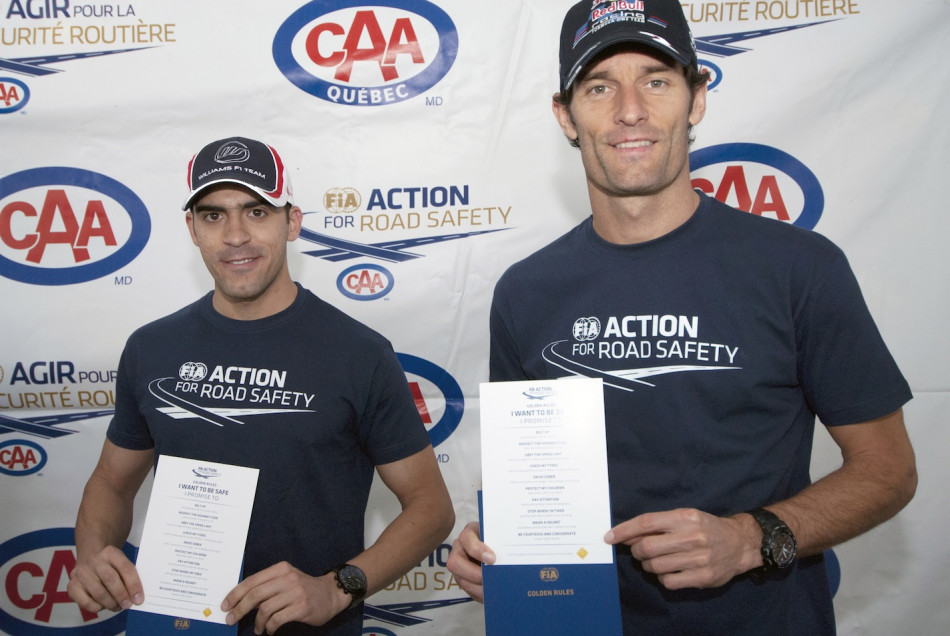Grand Prix Winners go for Gold in Canada

Red Bull racing driver Webber, who took his second Monaco Grand Prix win a fortnight ago, and Williams F1 star Maldonado, who scored his maiden grand prix win in at the Spanish Grand Prix last month, were on hand at Parc Jean Drapeau in Montreal to help the Canadian Automobile Association and the FIA push home the message that impaired driving is a growing scourge on the roads of Canada and the wider world.
With research by Transport Canada showing that in 2008 some 39% of all drivers involved in fatal accidents across the country had consumed alcohol, both drivers were keen to take part in a simulation of the effects of alcohol and narcotic-impaired driving. They also participated in a sobriety test conducted by the police in which they learned how driving under the influence of alcohol or narcotics seriously impairs decision-making and reactions.

 Facebook
Facebook Twitter
Twitter






